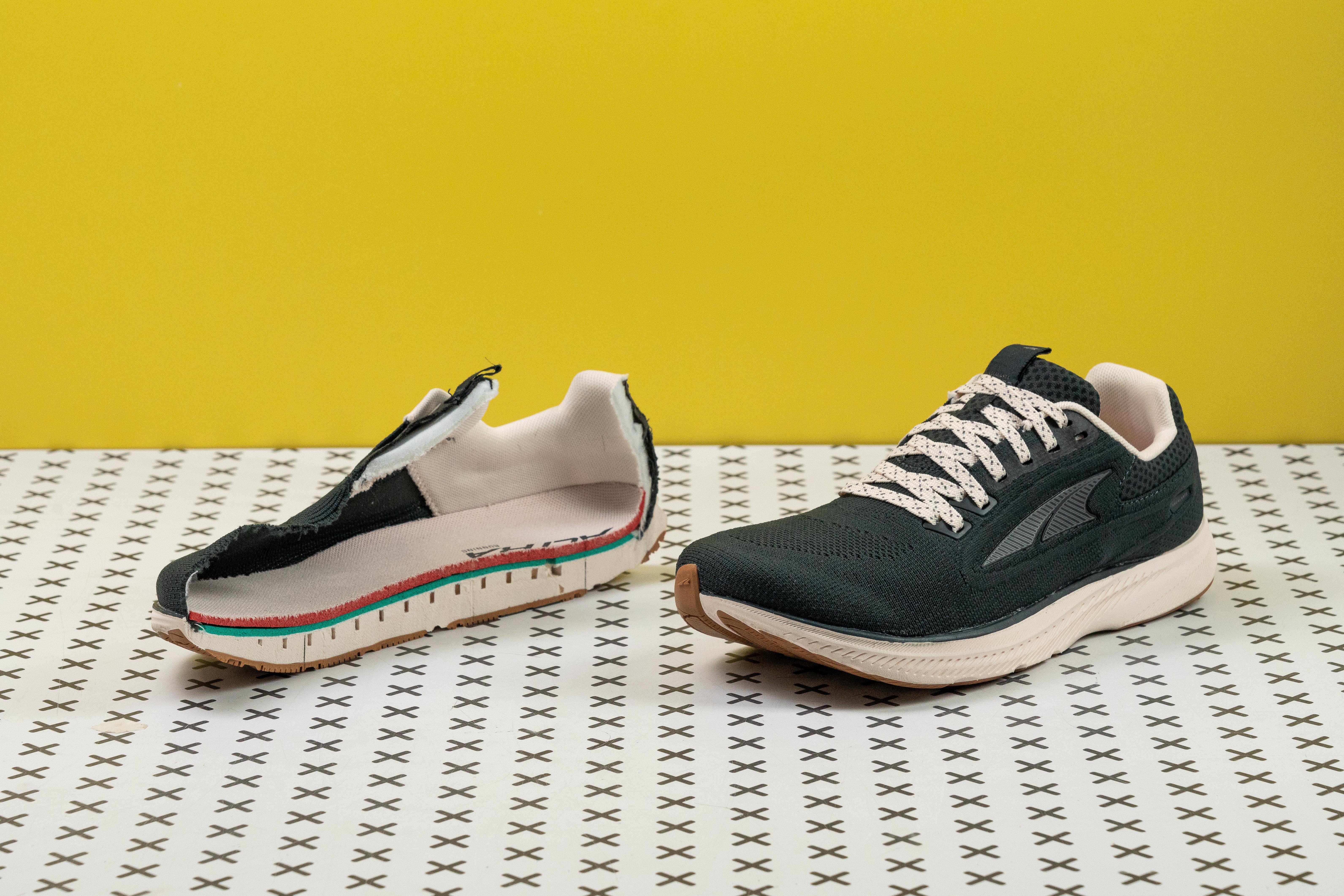Our verdict
- Top pick in best zero drop running shoes (2023)
Pros
- Comfy all-day
- Responsive ride
- Allows ground feel
- Delivers planted strides
- Grippy on both road and light trail
- Supportive fit
- Very spacious toe box
- Built like a tank
- Great for the gym & walking
Cons
- Heavier than before
- Tight midfoot for wide feet
Audience verdict
Comparison
The most similar running shoes compared
+ + Add a shoe | |||||
|---|---|---|---|---|---|
| Audience score | 84 Good! | 86 Good! | 85 Good! | 83 Good! | |
| Price | $140 | $150 | $165 | $130 | |
| Pace | Daily runningTempo | Daily running | Daily running | Daily running | |
| Shock absorption | - | Low | - | Low | |
| Energy return | - | Moderate | - | Moderate | |
| Traction | - | High | - | High | |
| Arch support | Neutral | Neutral | Neutral | Neutral | |
| Weight lab Weight brand | 9.5 oz / 269g 7.7 oz / 219g | 9.7 oz / 275g 10.1 oz / 287g | 10.4 oz / 295g 10.5 oz / 297g | 8.4 oz / 237g 9.5 oz / 269g | |
| Lightweight | ✗ | ✗ | ✗ | ✓ | |
| Drop lab Drop brand | 0.2 mm 0.0 mm | -0.1 mm 0.0 mm | -0.2 mm 0.0 mm | 1.4 mm 0.0 mm | |
| Strike pattern | Mid/forefoot | Mid/forefoot | Mid/forefoot | Mid/forefoot | |
| Size | True to size | True to size | True to size | True to size | |
| Midsole softness | Balanced | Balanced | Soft | Balanced | |
| Difference in midsole softness in cold | Normal | Normal | Small | Normal | |
| Toebox durability | - | Good | Good | Good | |
| Heel padding durability | - | Good | Good | Good | |
| Outsole durability | - | Good | Good | Good | |
| Breathability | Moderate | Moderate | Warm | Moderate | |
| Width / fit | Medium | Medium | Wide | Wide | |
| Toebox width | - | Wide | Wide | Wide | |
| Stiffness | Stiff | Moderate | Stiff | Flexible | |
| Torsional rigidity | Flexible | Moderate | Stiff | Flexible | |
| Heel counter stiffness | Flexible | Stiff | Moderate | Flexible | |
| Heel lab Heel brand | 25.0 mm 26.0 mm | 27.6 mm 30.0 mm | 34.8 mm 33.0 mm | 23.8 mm 24.0 mm | |
| Forefoot lab Forefoot brand | 24.8 mm 26.0 mm | 27.7 mm 30.0 mm | 35.0 mm 33.0 mm | 22.4 mm 24.0 mm | |
| Widths available | Normal | NormalWide | Normal | Normal | |
| Orthotic friendly | ✓ | ✓ | ✓ | ✓ | |
| Season | All seasons | All seasons | All seasons | All seasons | |
| Removable insole | ✓ | ✓ | ✓ | ✓ | |
| Ranking | #463 Bottom 29% | #173 Top 47% | #224 Bottom 39% | #255 Bottom 31% | |
| Popularity | #399 Bottom 39% | #72 Top 20% | #131 Top 36% | #86 Top 24% |
Size and fit
Size
Altra Escalante 3 fits true to size (76 votes).
Who should buy the Altra Escalante 3
The third version of the Altra Escalante is perfectly suited for those who want a:
- grippy and stable shoe for short to long miles on the road
- quick and energetic running shoe that's also stable on light trails
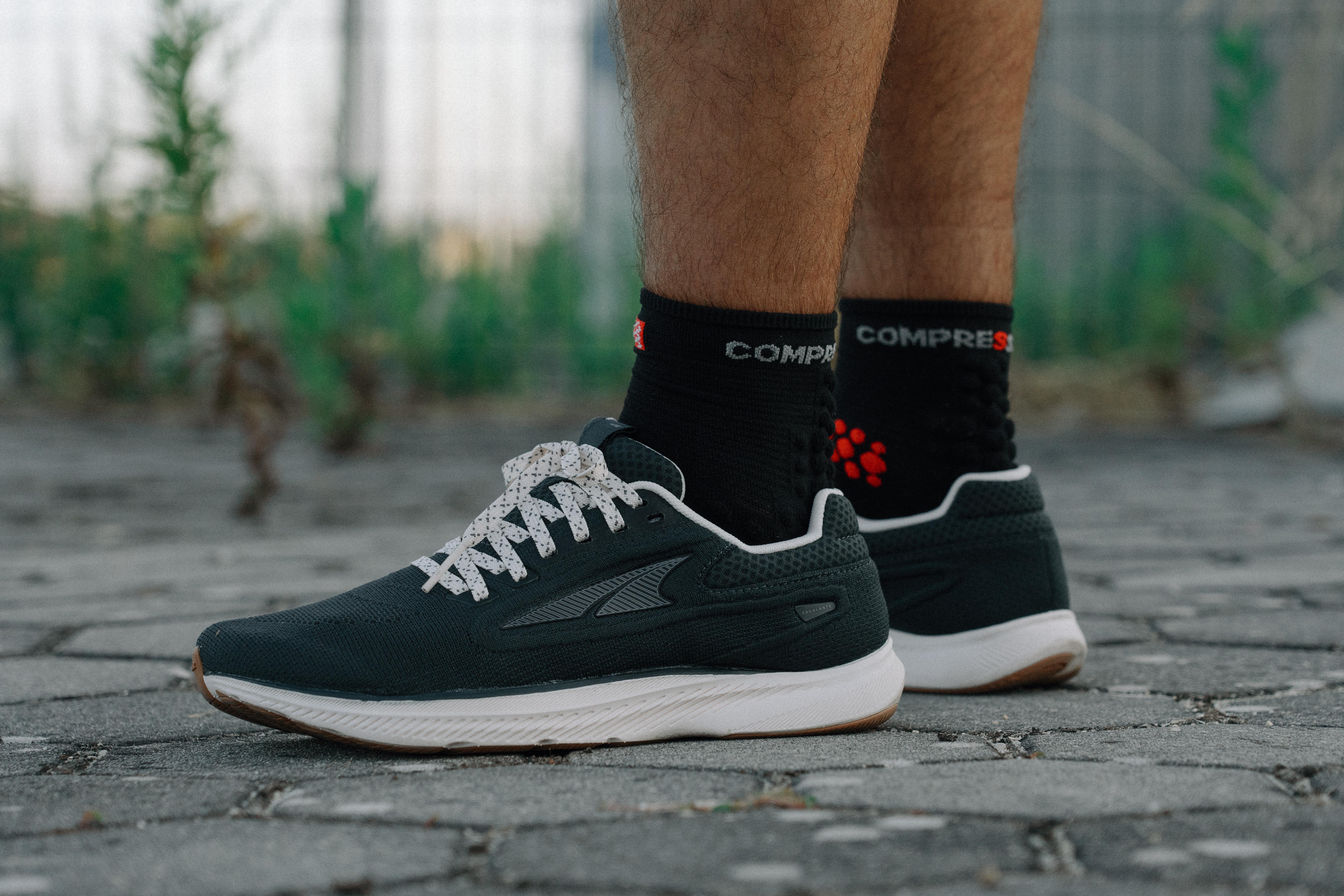
Who should NOT buy
When it comes to fit, the Altra Escalante 3 has shifted from very roomy to rather snug (save for the toe box), which is why we cannot recommend it to runners with wide feet. If you happen to have broad feet, check out the Altra Rivera 2.
If you're looking for something lighter but just as speed-oriented, we discovered that the Altra Vanish Carbon is a more race-ready alternative to the Escalante 3.
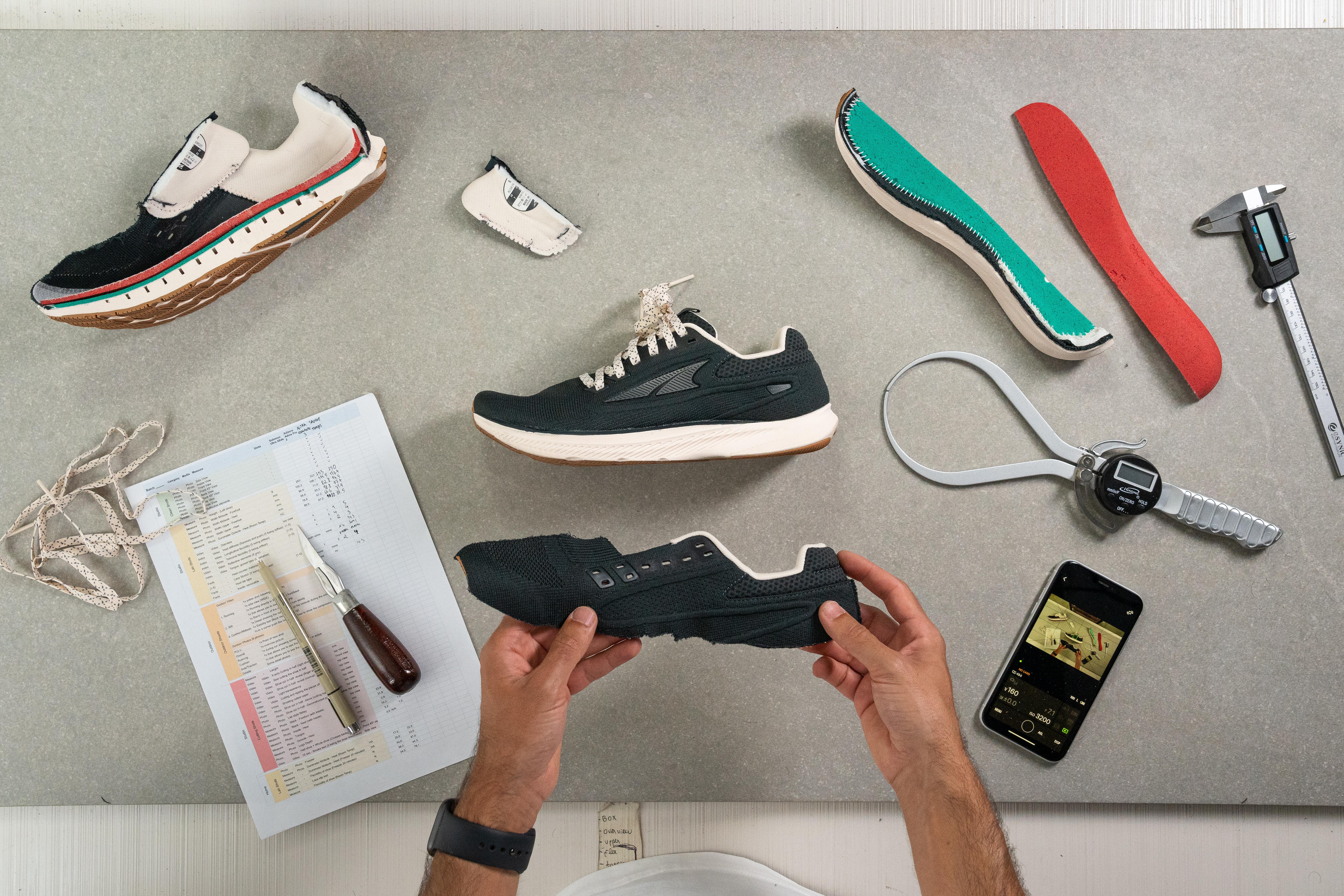
Altra Escalante 3 is very breathable
On our tests, it scored 4/5 for breathability. The average is 3.7 so you're in for a treat. And look at all that smoke coming out!
In case the smoke is not enough, we can notice how the light easily goes through the upper when the shoe is cut in half.
Not the best winter shoe
Here's why:
- The shoe got 111% stiffer after spending 20 minutes in the freezer. Shoes usually get 41.7% stiffer (on average).
- Looking at the softness (durometer numbers), the shoe got 31.5% firmer and shoes usually get 22.3% firmer. It's comforting that even after 20 mins it's not so much firmer than other shoes at room temperature, but still, there's a big difference for the shoe itself. After 20mins in the freezer, the durometer showed 31.3 for Escalante 3 and the average softness for room temperature is 28.5
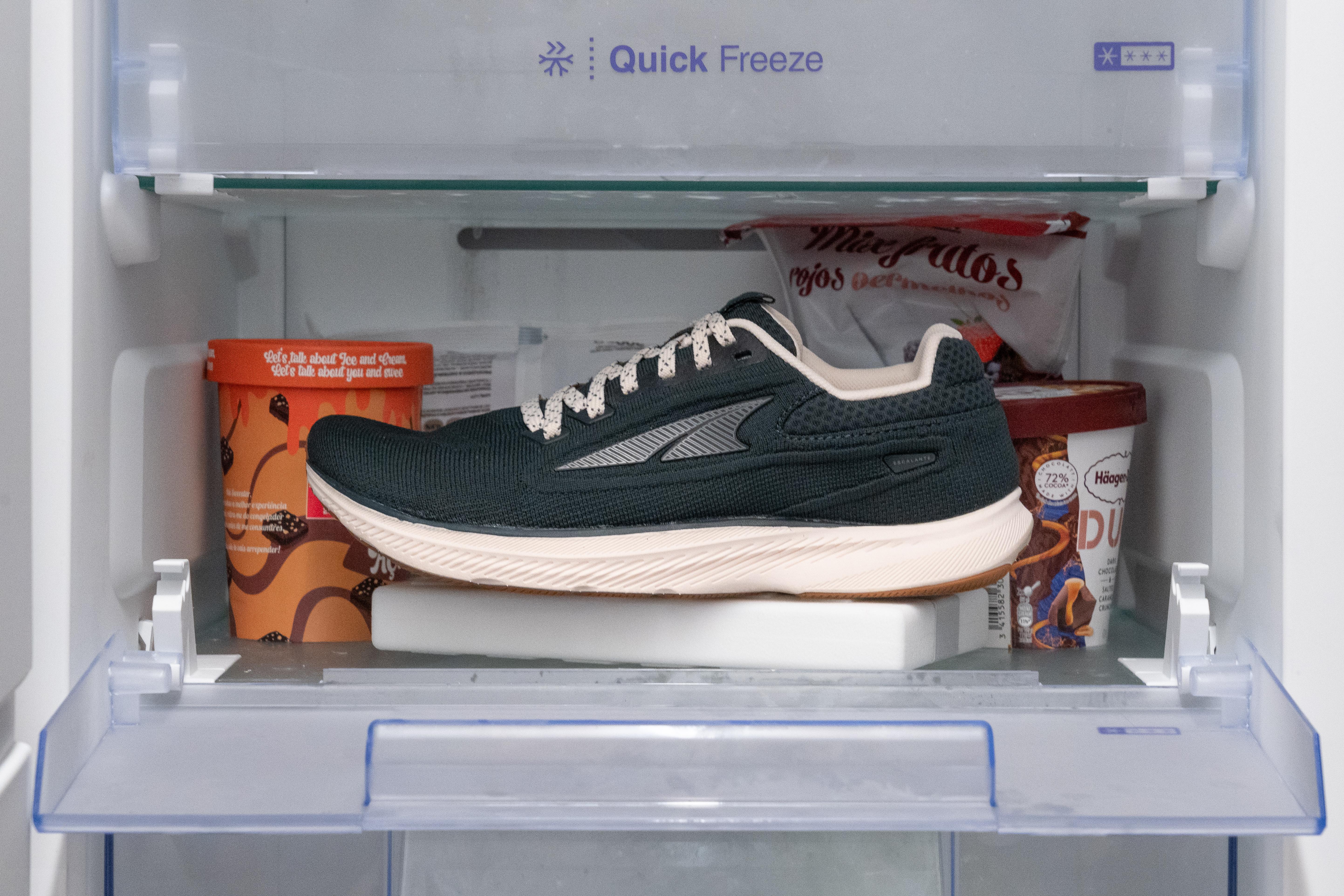
Snugger than ever
The Altra Escalante 3 is now more form-fitting. This can be a hit or a miss depending on your fit preferences.
For our medium-width feet, we believe that this version resolves the sloppy fit of the past iterations. It locked our feet much better preventing the foot from sliding inside the shoe.
Measuring the shoe's toebox width with a caliper confirmed our experience. The Escalante 3 comes in at 98.8 mm in the widest part of the forefoot which is slightly narrower than the average 100-102 mm among Altra shoes.
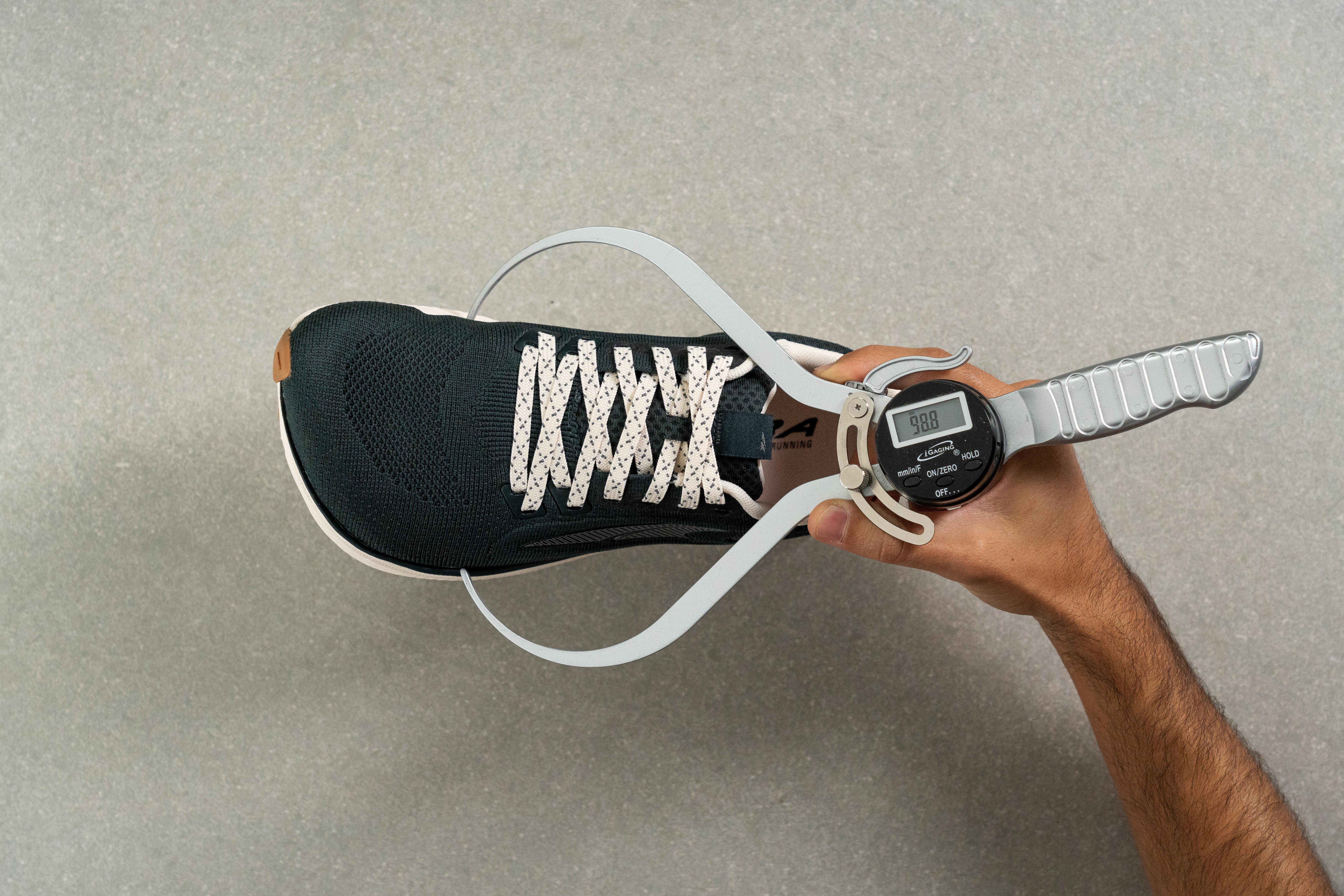
Altra Escalante 3 vs. 2
In the new iteration of the brand's staple running shoe, the Escalante pumps things up by:
- having a more stable ride
- being snugger-fitting thanks to the added padding in the upper
- ...but heavier (goes from 196 grams/6.9 ounces to 255 grams/8.9 ounces)
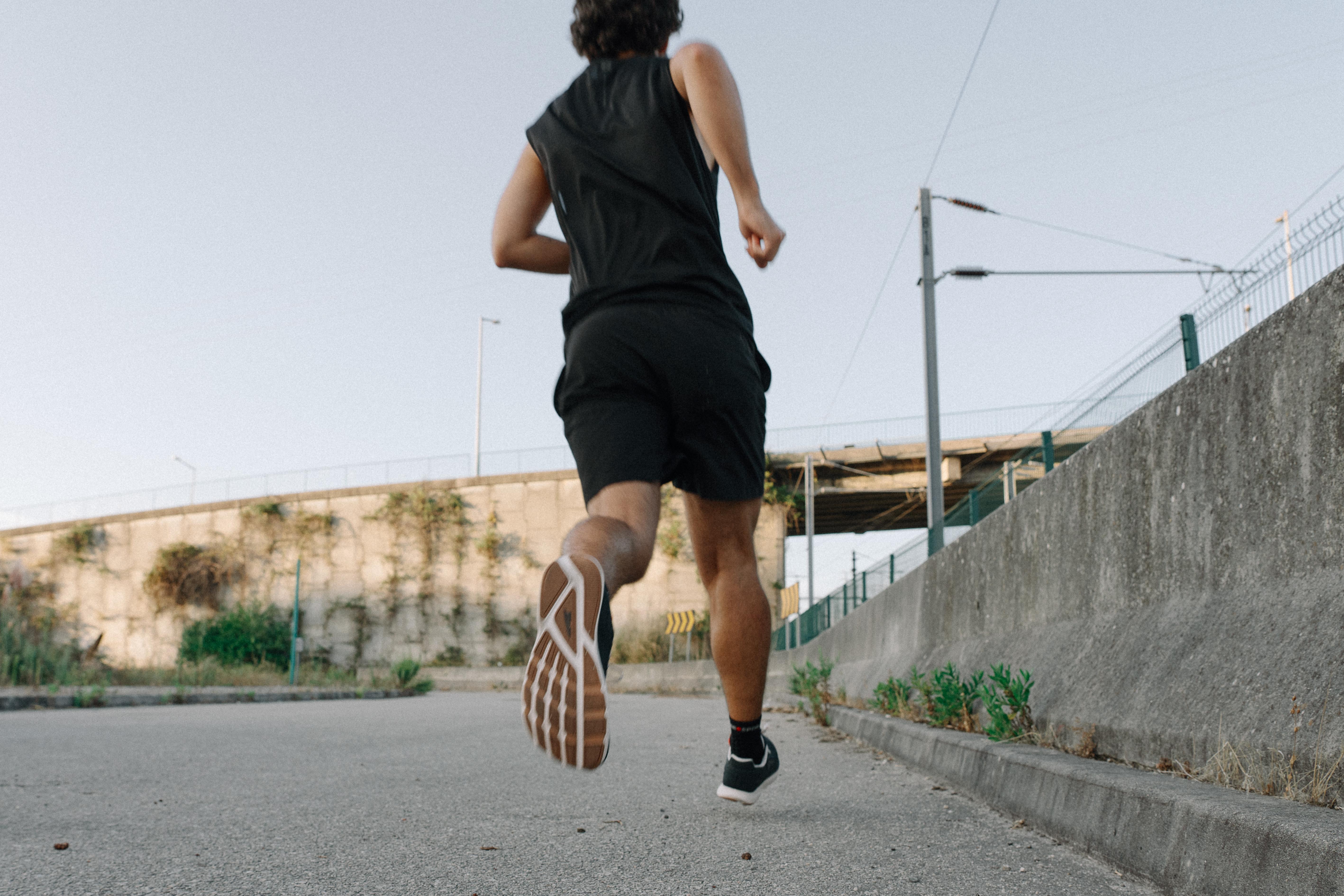
Ready for the tempos
We found the shoe's overall ride to be snappy and responsive. It's firm yet bouncy which makes it easy to pick up the pace in the Escalante 3.
With all of that, the shoe also remained quite comfortable thanks to the give in its midsole.
This allowed us to take the shoe out on a longer run like 10K. The cushioning did a fantastic job preventing our feet from feeling trashed by the end of the run.
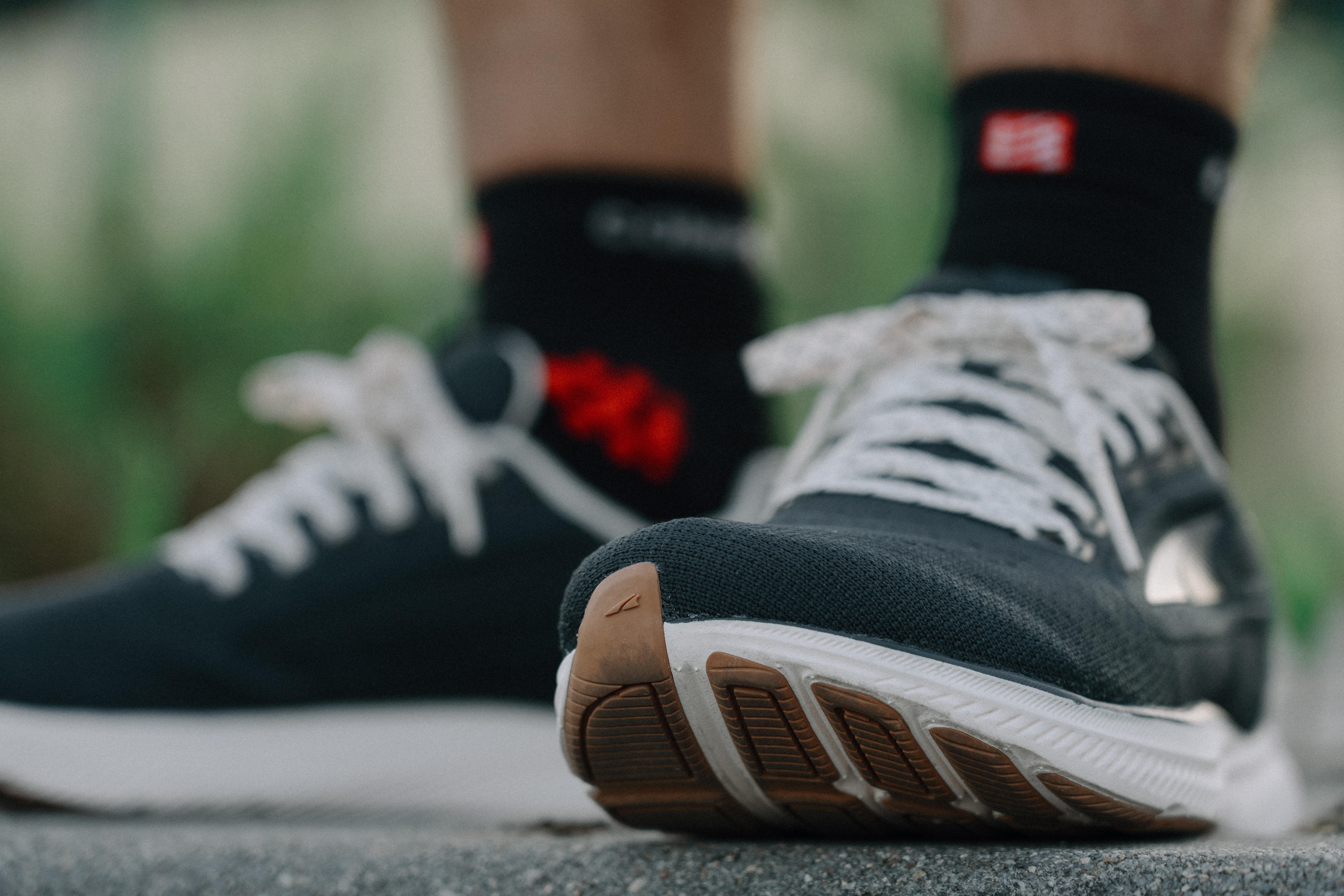
Looking at our durometer measurements, the Escalante 3 scored 23.8 HA which is exactly the same as the average of our lab-tested road running shoes.
This is what natural feels like
We feel like the word "natural" best describes the Altra Escalante 3's performance. It is low to the ground and is not overly soft. There is nothing extra about it.
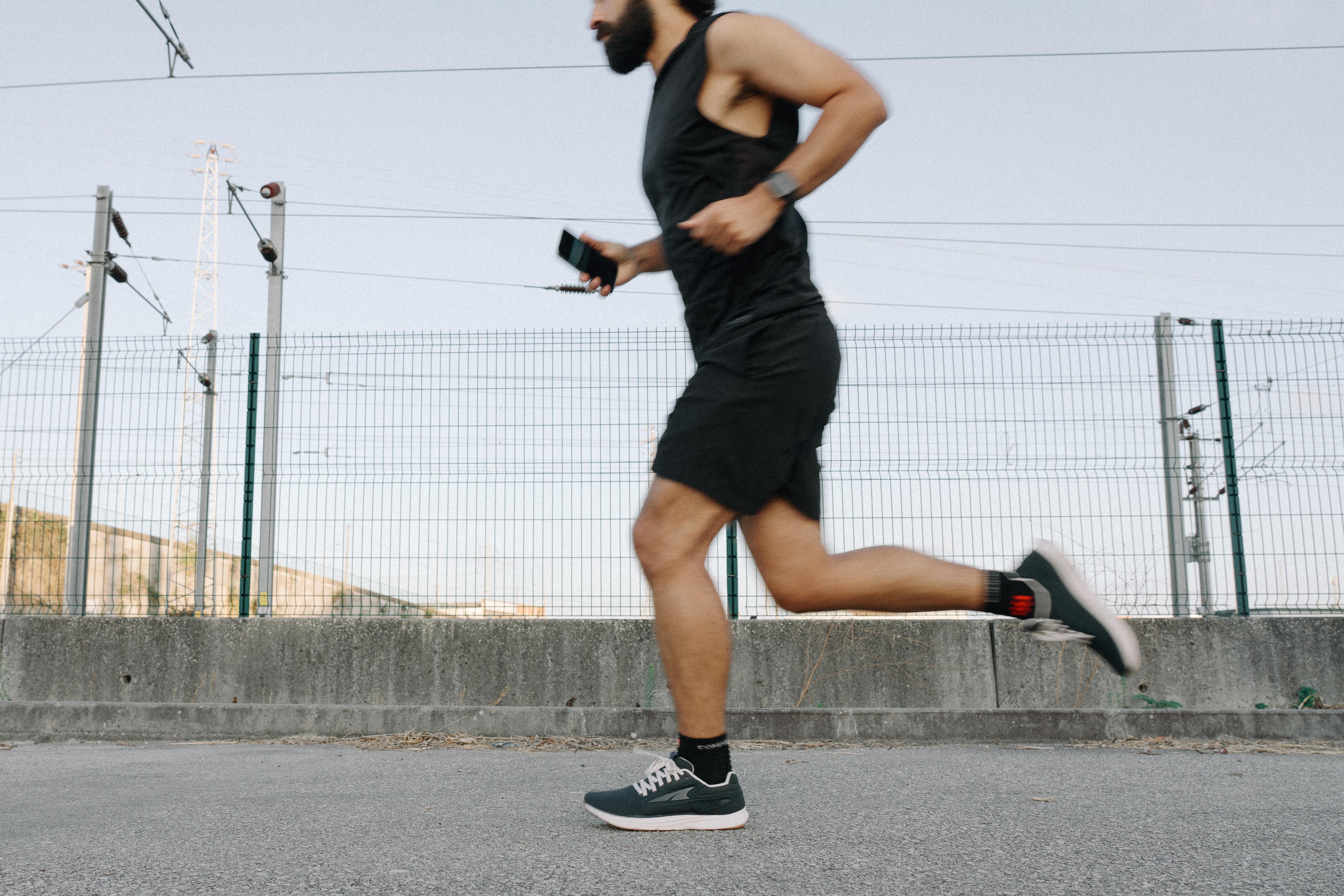
There are a few data points we can check here. The shoe feels so grounded thanks to its lower-than-average stack height. In the heel, we measured it at 25 mm which is way lower than the average 33.5 mm.
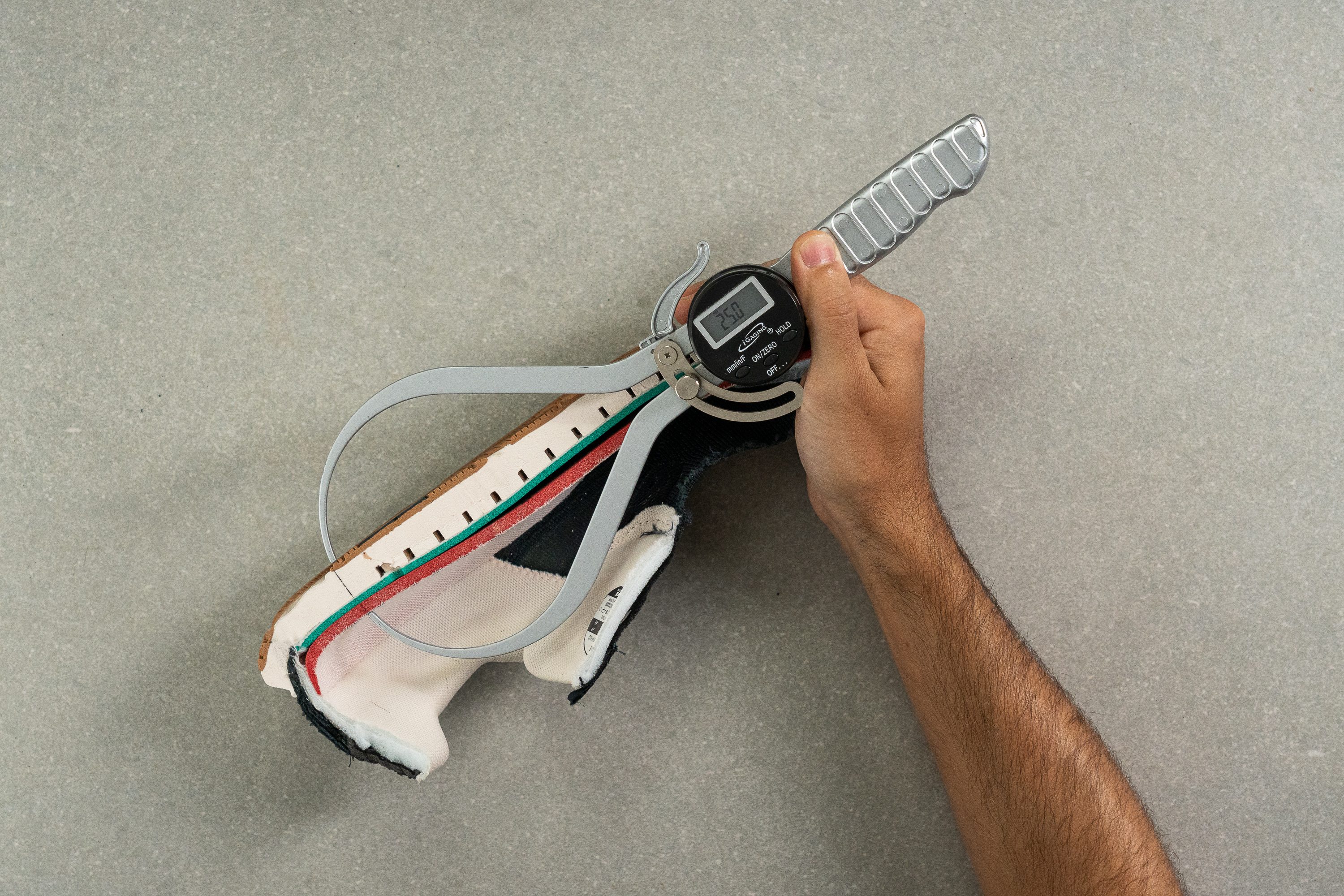
Second is the drop. The difference in stack heights gave us 0.2 mm which stands true to the brand's zero-drop commitment.
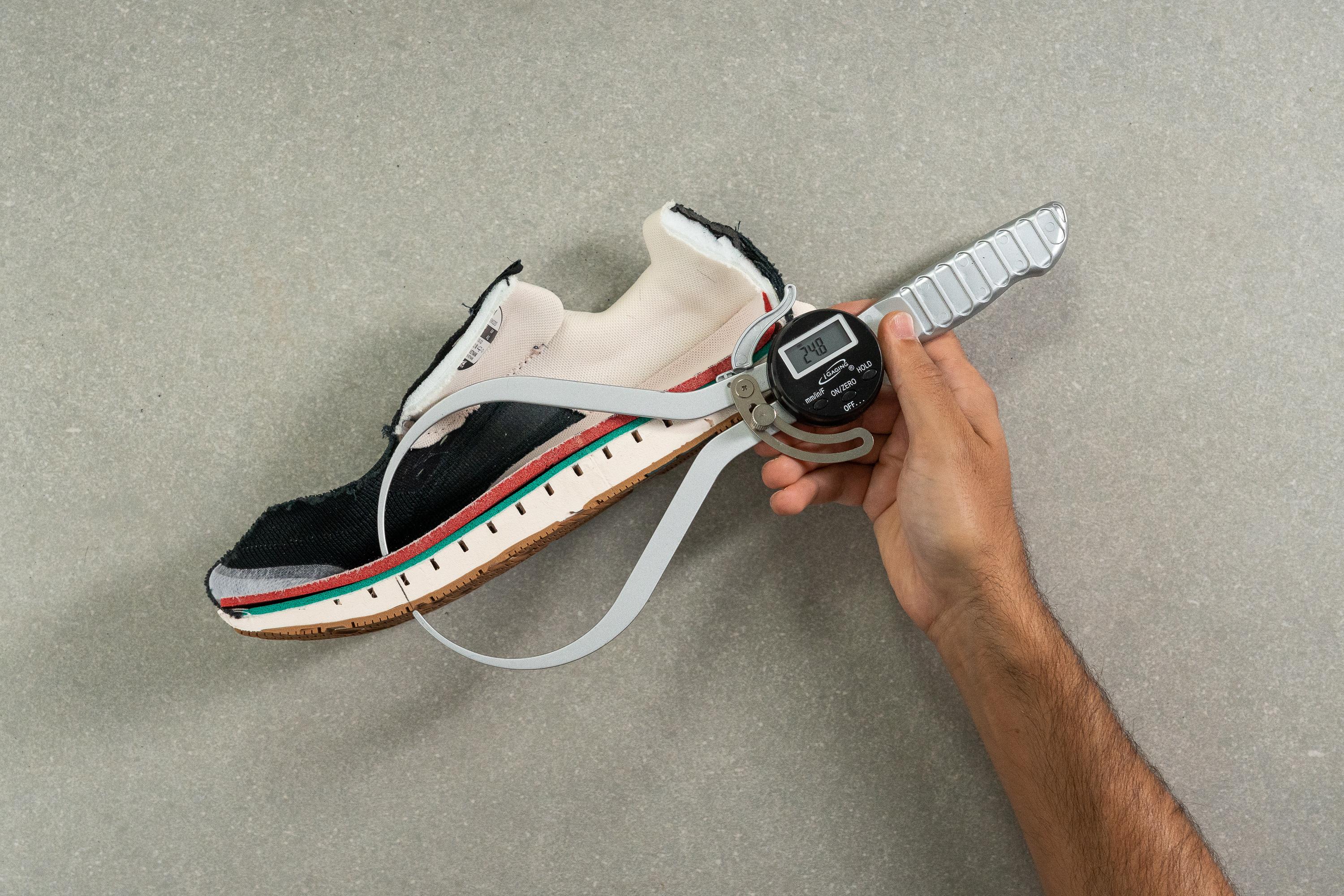
Finally, the Escalante 3 also turns out to be more flexible than the average running shoe. 20% more flexible to be exact which goes on to help with the "natural" feel.
The Altra Escalante 3 is stable
Thanks to the shoe's wide midfoot and forefoot base, we never had to worry about losing our footing.
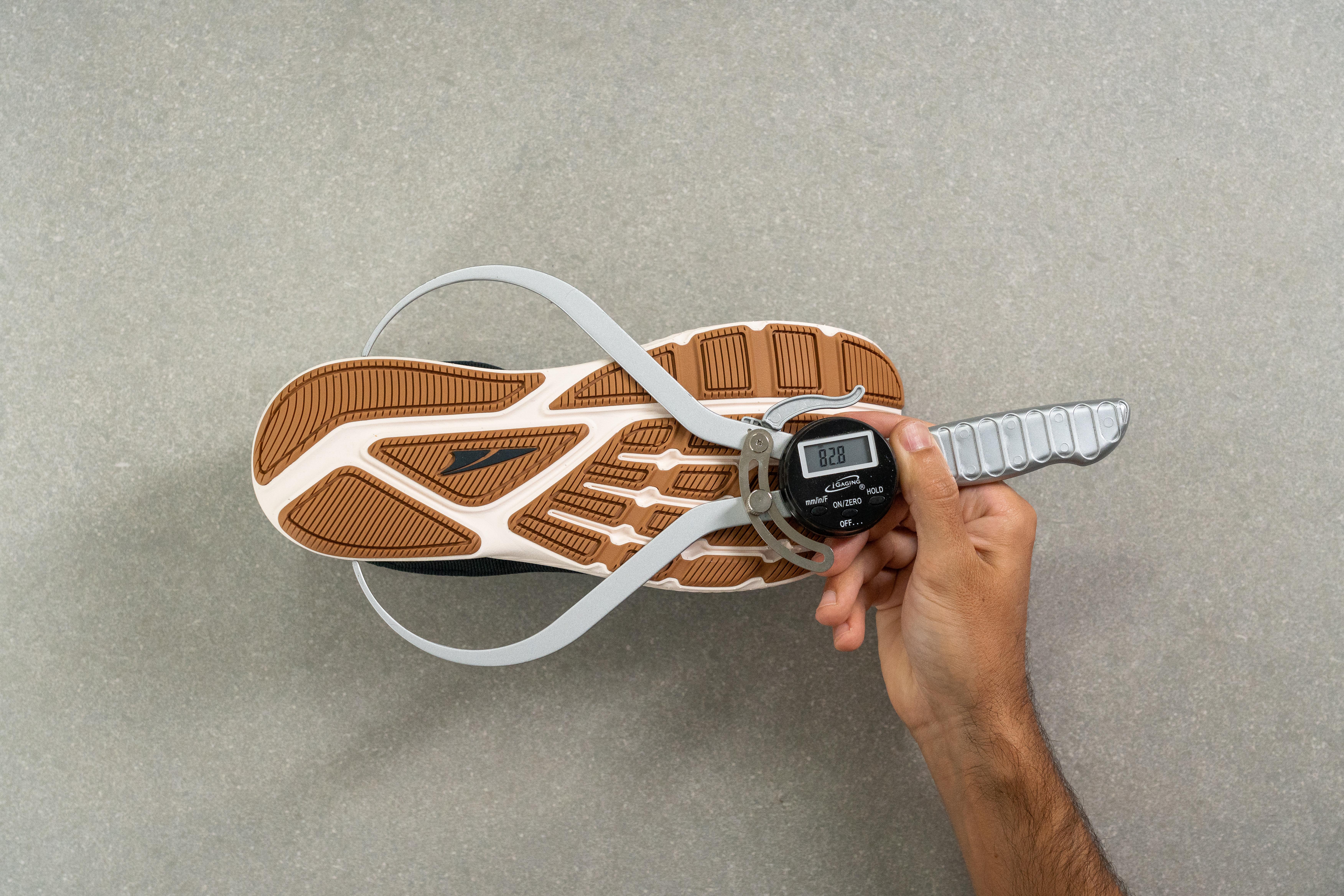
Stability is usually attributed to the wide base and upper that's narrower than the base. This is what lab data can tell us in this case:
- At the forefoot, the midsole of Altra Escalante 3 sits at the average (111.5mm vs 111.8mm). At the heel, it is narrower than the average, almost 6mm! (Escalante: 82.8mm, average: 88.7mm)
- Looking at the upper at the forefoot, it's again around the average (98.8mm vs 98.5mm). At the heel, it is much narrower: 66.6mm compared to 75.7mm.
- Basically, what sets Escalante 3 apart from other shoes is a heel that is 9.1mm narrower in the upper than the average shoe out there! This might have attributed a lot to the overall stability feel.
Ready for the miles ahead
Because of the outsole's rubber coverage, we predict that this shoe can last at least 300 miles.
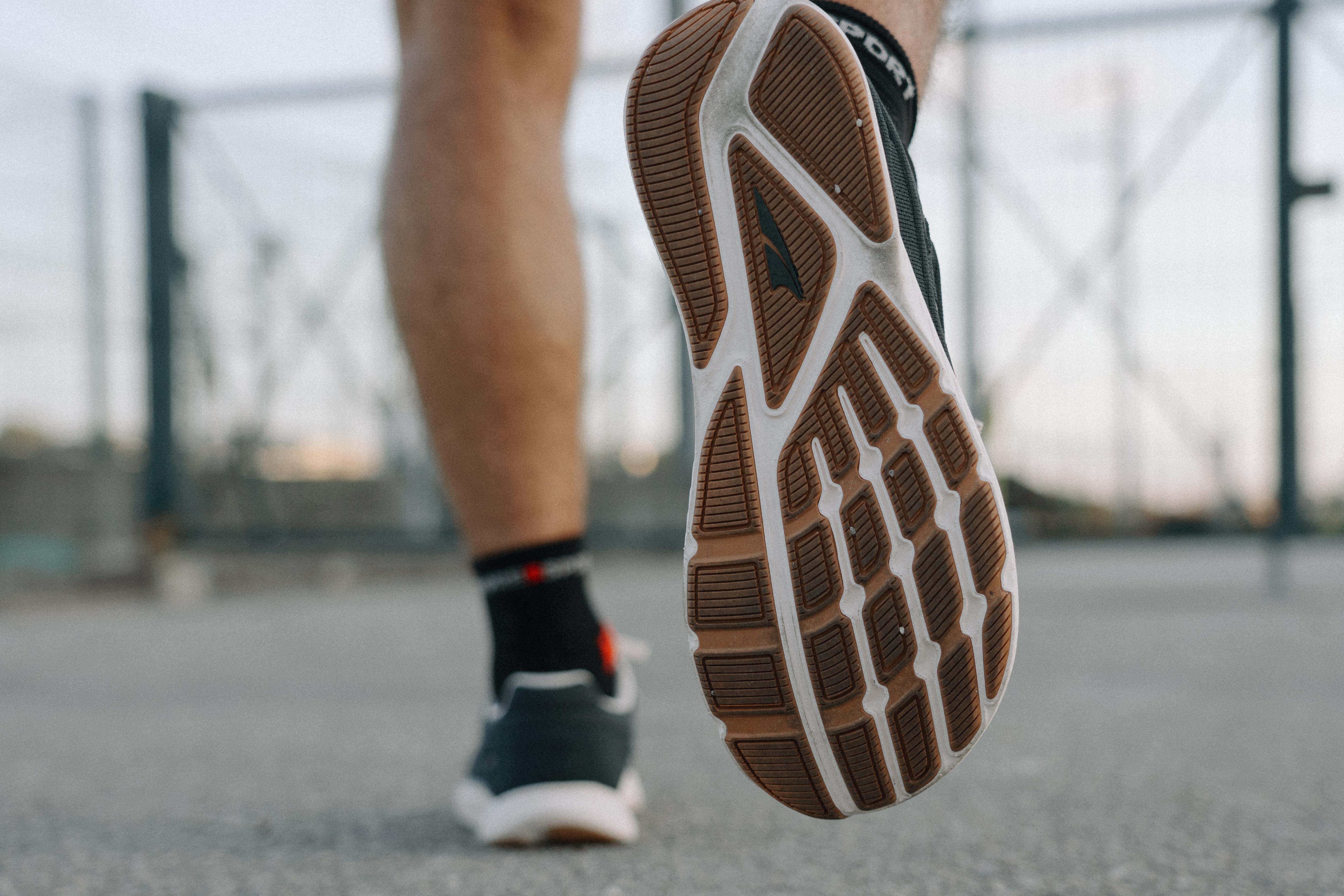
Having clocked up around 30 miles in the shoe, we are impressed with the shoe's longevity.
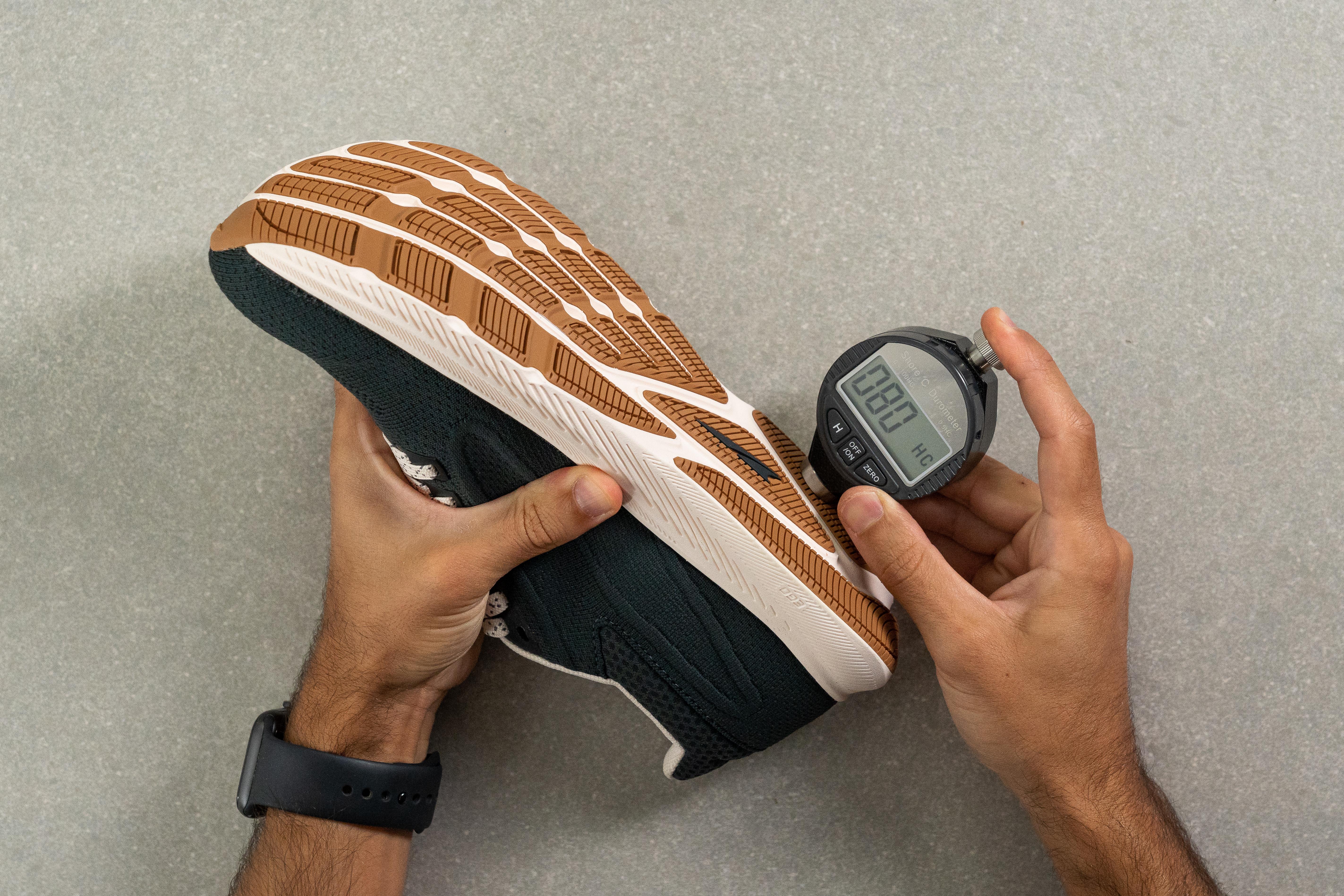
On top of its durability, the outsole also has a solid bite on gravel, damp roads, and even light trails.
Looking at the lab data. however, we found that the Escalante 3 is fairly average. Its rubber outsole has a thickness of 3.6 mm and a hardness of 80 HC - both are the same as the average.
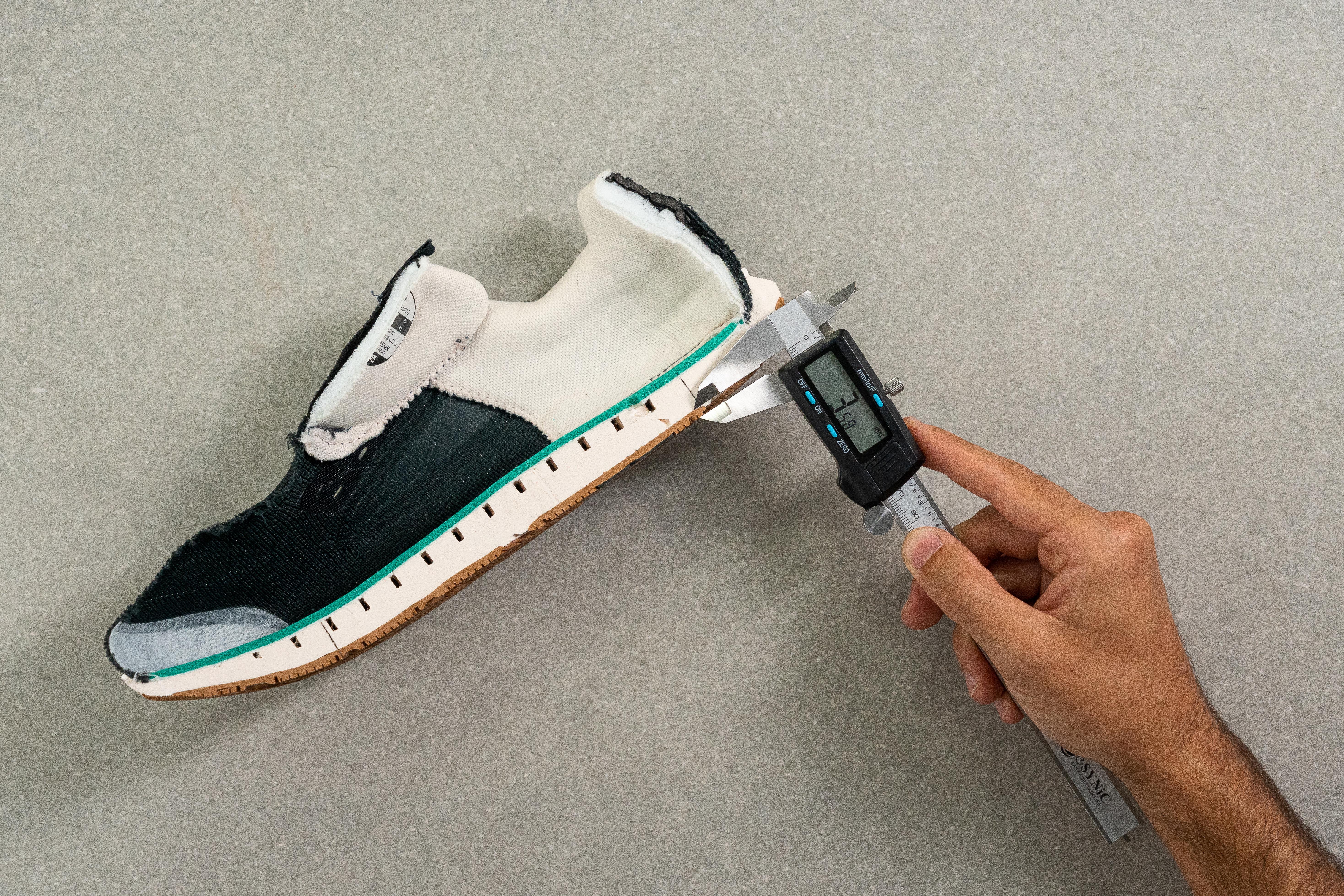
A jack of all trades
Whether it's for daily running, tempo days, biking, hiking, or even racewalking, the Altra Escalante 3 can handle it all.
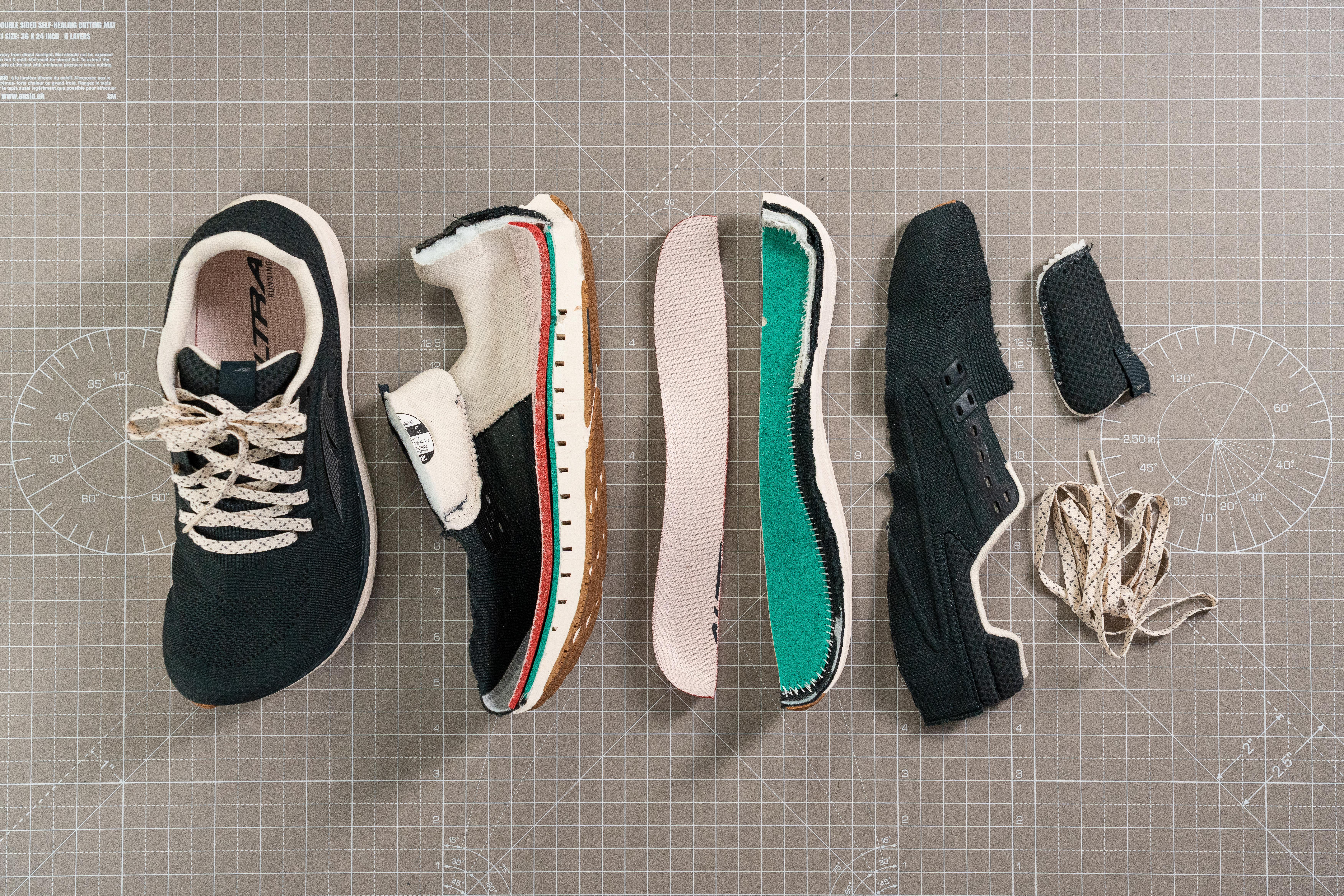
Toebox: not Altra-wide but still very spacious
Looking at our caliper measurement, the widest part of the shoe's toebox comes in at 98.8 mm. This makes the Escalante 3 the same as the average.
However, looking at the enormous square toebox, we can tell that there is significantly more room for toe splay in this Altra shoe compared to the average running shoe.
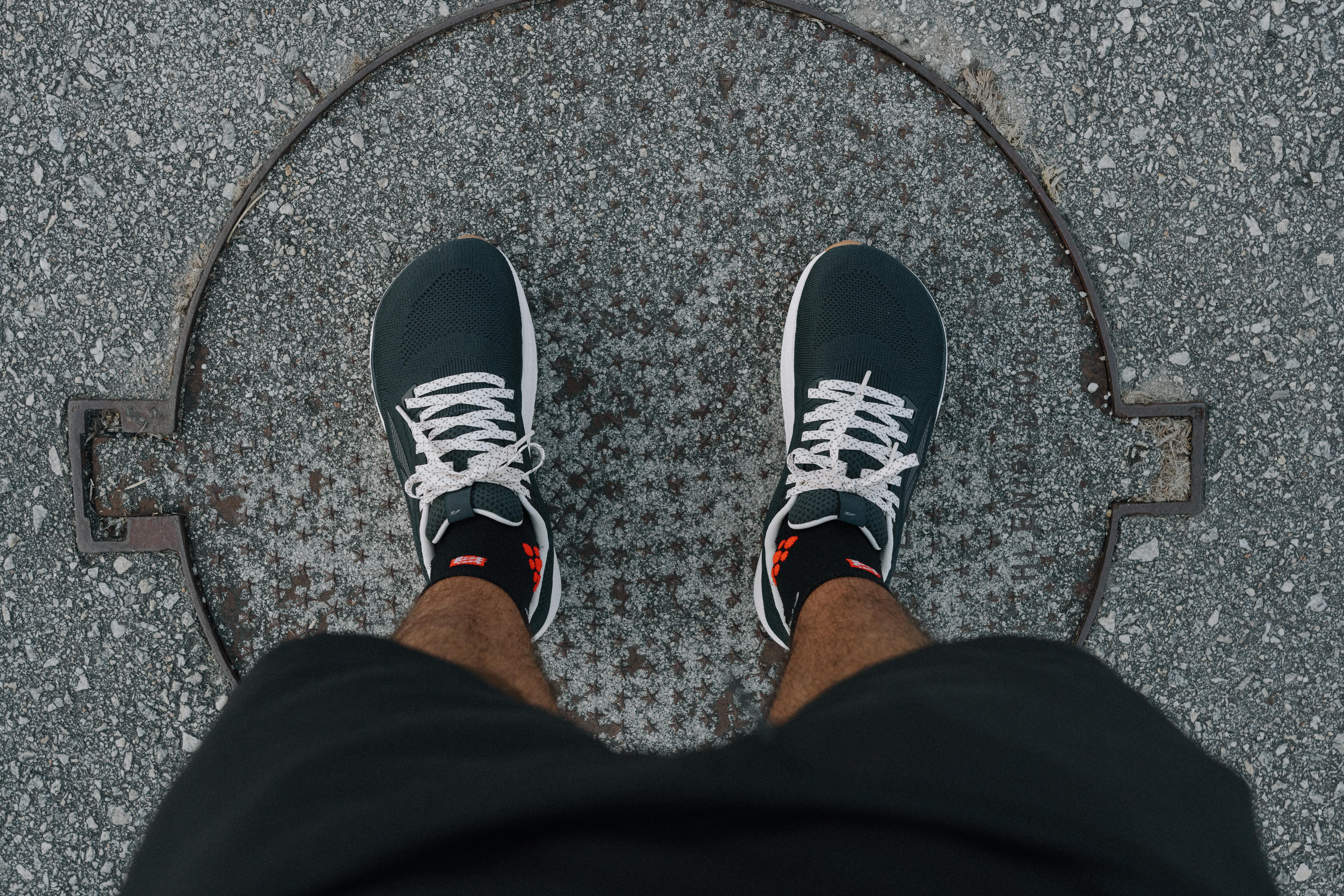
Heel is snug and VERY soft
Based on our lab numbers, we see that the heel scored 1/5 for stiffness. Given that 5/5 would mean the stiffest heel out there, this means that this is a VERY soft heel. Compared to the average for all our shoes, which is 2.9, embrace yourselves: it's as soft as it can get.
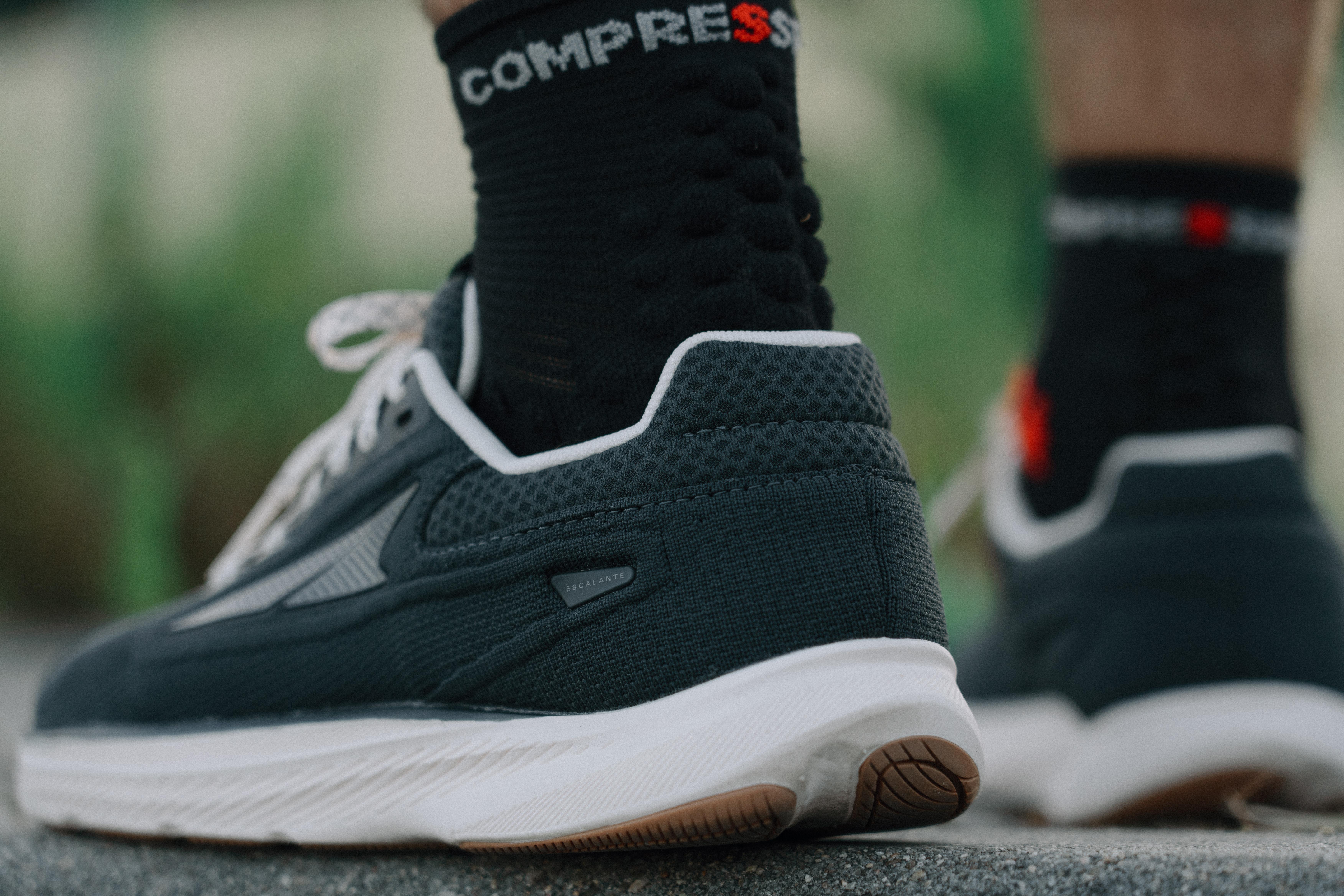
Escalante 3 is very flexible
At room temperature, we needed a force of 25.7N to blend the shoe. This is 20% less force than it takes to bend a road running shoe on average.
Longitudinal and torsional stiffness scored 2/5 while the averages are 3.3 and 3.4, respectively.

